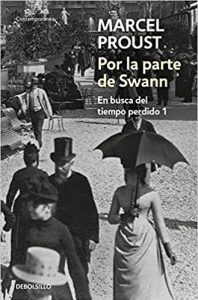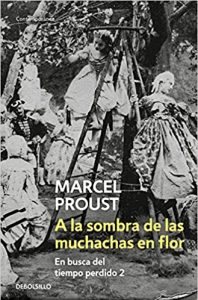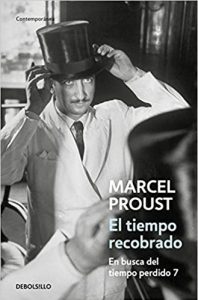The very marked gift sometimes seems to need a compensatory balance. Marcel Proust he had much of an innate creator, but in contrast he grew up as a child of delicate health. Or maybe it was all because of the same plan. From weakness, a special sensitivity is acquired, an impression on the edge of life, an unparalleled opportunity to focus the creative gift towards the dilemmas of life. existence.
Because from weakness only rebellion can be born, the desire to communicate discontent and pessimism. Literature, cradle of souls doomed to tragedy, sublimation of the losers and unequivocal reflection of what we truly are. In the midst of the transition between the 19th and 20th centuries, Proust knew how to relate the synthesis of living like no one else, surrendering to the impulses of his youth to withdraw into himself once he had reached maturity.
Lovers of Proust obtain in his great masterpiece "In search of lost time" an exquisite literary pleasure, and some volumes facilitate the approach to this wonderful existential library in case formats:
On the other hand, the greatest difficulty in writing fiction in an existentialist tone lies in a possible authentically philosophical drift. To avoid this centripetal force that leads the writer towards the wells of thought and that stagnates characters and settings, a point of vitalism is needed, a contribution of fantasy or energizing action (thought, meditation can also be action, to the extent in which they move the reader between sensations, between perceptions in a chronology that is never static). Only in that balance could Proust create his great work In Search of Lost Time, that set of novels woven together by two threads, delicacy or fragility and the feeling of loss, of tragedy.
Finally deceased at age 49, it is likely that his mission in this world, if this world has a mission or destiny, will be frankly well closed. His work is the summit of literature.
Top novels by Marcel Proust
Down the swann road
In a literary volume, something that does not always happen on an album for example, the first composition must be one of the best of the set.
That is what happens with this first novel that opens the great compilation In Search of Lost Time. The magic of this first novel is its ability to introduce us to the autobiographical, getting us to read it and feel it as our own.
Trivial details that lead us to our own experiences from which we can immerse ourselves in the author's perspective, in his experiences and our experiences, in his loves and disloves but also ours. In the frustrations of limitations and our own sense of defeat in the face of his own circumstances.
Proust makes us his own, and we learn through Proust the essential humanity that we usually mask in everyday life. The first love, the fleeting happiness like a simple chemical flash.
In the shadow of the girls in bloom
Stated to deal with love, about its chemistry that produces the only complete happiness in its unreality, nothing better than to delve into this second novel of the set In Search of Lost Time.
It is true that the shadow of love could have been a more marked sensation in the times of Proust's youth, where courtship (what is that? Young people today will say) provided a point between romantic and anxious, between feverish and hopeful, always erotic on the verge of implosion.
And from that, from the hope of emotional and physical love, sometimes heartbreak and disenchantment, forgetfulness and betrayal are born and unleashed. Unmaterialized or extinguished love elevates the human soul to the glory of its existence or to the most profuse hells of creation.
Art drinks from love…, but time passes, accumulating in that bag of lost things that, after all, sustains this great composition of novels.
Time regained
It is fair to end this particular ranking with the same closing of the set In Search of Lost Time. Because this latest novel ties everything together, like a wonderful destiny that a writer has known how to trace as a God. But, how could it be otherwise, the end is decadent and tragic.
Marcel makes present to all those characters that accompany him in the literary composition. A paradox about the title itself. Time really regained can only be understood as the discovery of the whole trick of existence. There is no longer beauty or drives, old age has taken over everything, disease is lurking.
And yet, as someone pointed out, melancholy is the joy of being sad. The melancholic captures us precisely for that reason, what can no longer be acquires more beauty than it really could have had.
The decadence is so because a previous brilliance is understood. The proximity to the end of life brightens the memories and we end up discovering how unreal we are, always more inclined to live in pasts and fantasies than in a present of moments that can never be captured in its inexorable passage.




